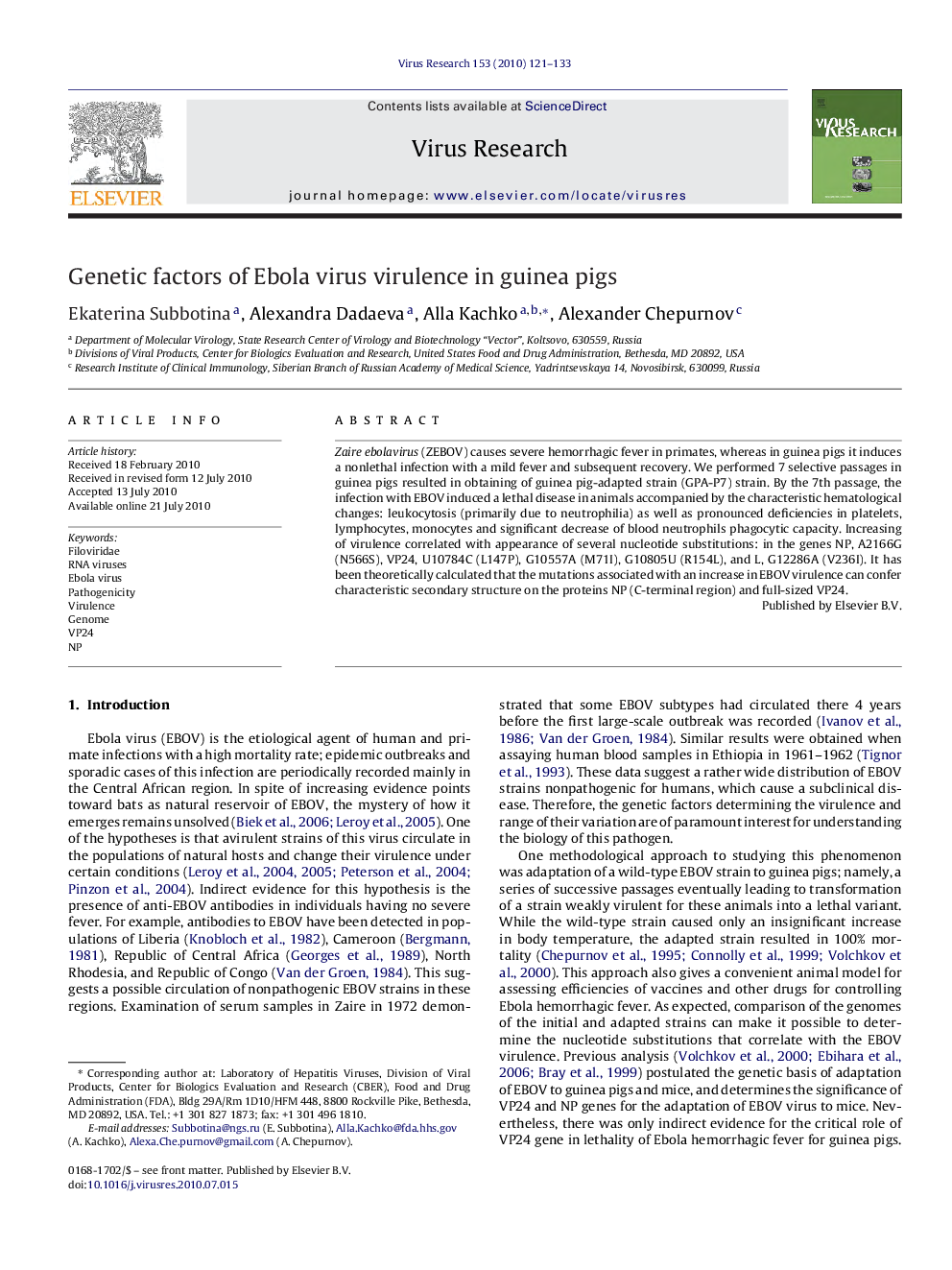| Article ID | Journal | Published Year | Pages | File Type |
|---|---|---|---|---|
| 3429338 | Virus Research | 2010 | 13 Pages |
Zaire ebolavirus (ZEBOV) causes severe hemorrhagic fever in primates, whereas in guinea pigs it induces a nonlethal infection with a mild fever and subsequent recovery. We performed 7 selective passages in guinea pigs resulted in obtaining of guinea pig-adapted strain (GPA-P7) strain. By the 7th passage, the infection with EBOV induced a lethal disease in animals accompanied by the characteristic hematological changes: leukocytosis (primarily due to neutrophilia) as well as pronounced deficiencies in platelets, lymphocytes, monocytes and significant decrease of blood neutrophils phagocytic capacity. Increasing of virulence correlated with appearance of several nucleotide substitutions: in the genes NP, A2166G (N566S), VP24, U10784C (L147P), G10557A (M71I), G10805U (R154L), and L, G12286A (V236I). It has been theoretically calculated that the mutations associated with an increase in EBOV virulence can confer characteristic secondary structure on the proteins NP (C-terminal region) and full-sized VP24.
